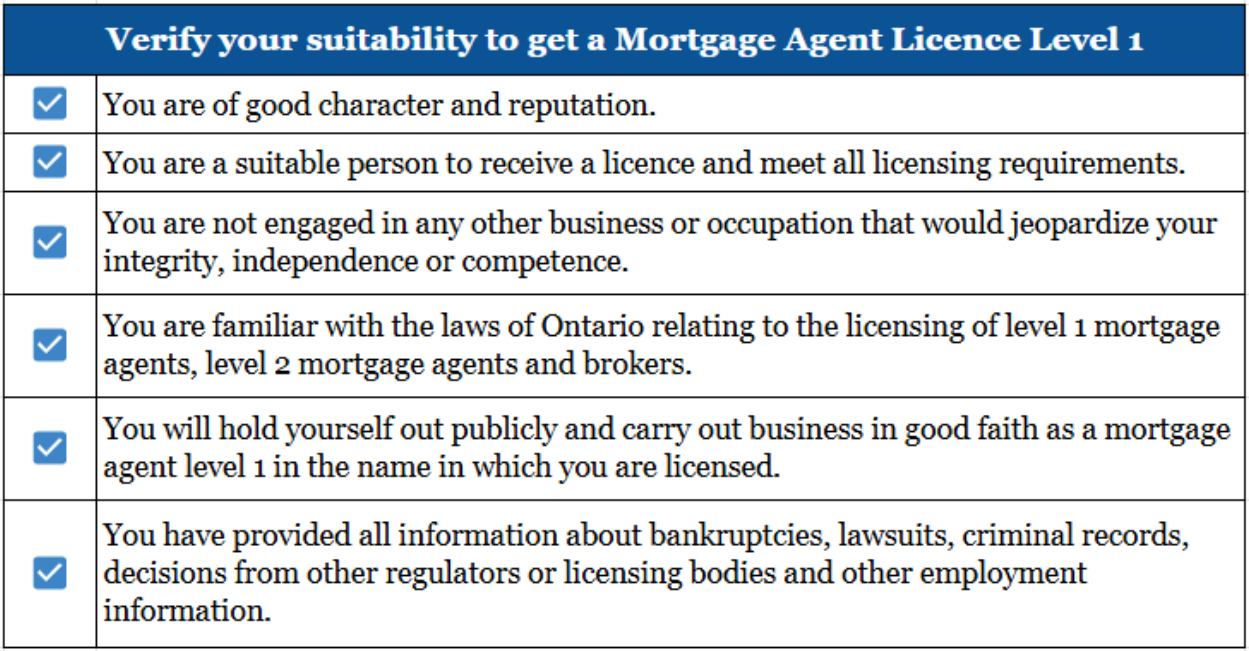Discover how to become a mortgage agent in Canada in this guide. We will discuss eligibility criteria, educational requirements and more

A mortgage agent in Canada helps people get the right home loan for their needs. They work with banks, credit unions, and other mortgage lenders. They explain the different types of mortgages to their clients to find the most suitable one.
Being a mortgage agent can be a great profession. They can help people achieve their homeownership dreams while also reaching their own career goals.
If you’re interested in how to become a mortgage agent, Canadian Mortgage Professional will discuss everything you need to know. We’ll also cover a common question: what’s the difference between mortgage brokers and mortgage agents? Read on to find out.
What does a mortgage agent do?
Before we discuss how to become a mortgage agent in Canada, let’s find out what agents do first. You need to be knowledgeable about the property loan options offered by banks, credit unions, and other mortgage lenders that you’ll work with. You should know the details of each mortgage option, including their:
- features
- benefits
- requirements
- interest rates
Every client is different. They will have unique financial situations and reasons for getting a mortgage. Your job is to match them with the mortgage that best fits their needs.
Once you help your client choose the right mortgage, you must guide them through meeting all the conditions set by the bank or mortgage lender. This is vital to make sure their mortgage application gets approved; or at least, help them increase their chances of approval.
How many levels of mortgage agents are there?
The Financial Services Regulatory Authority (FSRA) sets out two levels of mortgage agents. First, you need to apply for a mortgage agent level 1 licence. Since it is a tiered system, you can later upgrade to a mortgage agent level 2 licence. Only after completing these two levels can you apply to become a mortgage broker.
Eligibility criteria on how to become a mortgage agent
The requirements on how to become a mortgage agent in Canada can vary per location. You need to qualify for the criteria set by the province where you plan to work. For instance, the FSRA in Ontario lists these qualifications to become a licensed mortgage agent level 1:
- you must be a resident of Canada
- you must be 18 years old or older
- you must have a valid email address
- you must be authorized by a mortgage brokerage to deal in mortgages
- you must have an Ontario mailing address that can receive registered mail (not a post office box)
- you must complete an approved mortgage agent education program for a mortgage agent level 1 licence
You must also confirm the following requirements to verify if you are suitable to become a mortgage agent level 1:

Educational requirements in becoming a mortgage agent
To get a mortgage agent level 1 licence, you need to complete an FSRA-approved mortgage agent level 1 education program. This course teaches you the basics of working as a mortgage agent. Once you finish and pass the course, you must apply for your licence within two years. If you wait longer than two years, you will have to take the course again.
After getting your licence, you can work under a licensed mortgage broker and start helping people find the right mortgage. You can also choose to upgrade your licence to level 2 and eventually, apply for a mortgage broker licence.
Here are the institutions that the FSRA has authorised to offer the mortgage agent course in Ontario:
- Real Estate and Mortgage Institute of Canada Inc.
- Canadian Mortgage Brokers Association Ontario
- Mortgage Professionals Canada
- Humber Polytechnic
How long is the mortgage agent course in Ontario?
You can complete the mortgage agent course in Ontario for up to six months. This will involve learning the modules and passing the exam. You can also request a two-month extension within the six-month period.
Can a mortgage agent work from home?
Short answer: Yes. It is possible to work from home as a mortgage agent. Job hunting websites like Indeed list several openings for mortgage agents who want to work from the comfort of their homes.
As for the compensation, you can earn up to $83,814 per year. The average base salary is $60,295. Watch this video to learn more about the earning potential of mortgage agents in Canada:
A career as a mortgage loan officer can also be a lucrative one. Learn how to become a mortgage loan officer in Canada when you read this guide.
What's the difference between a mortgage broker and agent?
Both mortgage brokers and mortgage agents help people find the right mortgage to buy a home. They work with mortgage lenders to offer their clients the best home loan options for their needs.
The main difference is that a mortgage agent works under a licensed mortgage broker. On the other hand, a mortgage broker is fully licensed to work on their own and can have mortgage agents working for them.
Mortgage agents focus on bridging their clients with banks or mortgage lenders. They are knowledgeable about numerous mortgage offerings. Their main task is to help eligible home buyers through the mortgage application process. Mortgage agents need to be certain that their clients understand the terms, costs, and steps needed to get a property loan.
Mortgage brokers can perform the same tasks, but they have more responsibility. They deal directly with banks, credit unions, and other mortgage lenders. Mortgage brokers help their clients choose the right mortgage and manage more complex cases. Since they are licensed at a higher level, they can build their own business and supervise mortgage agents.
Preparing to work as a new mortgage agent
If you are a new mortgage agent, you should find ways to establish your brand. This means promoting yourself online and connecting with different professionals and institutions from related industries. Doing this can help you get referrals over time and learn more about the mortgage industry. Remember, the more you know, the better service you can give to your clients.
It’s also necessary to stay up to date with the latest news and changes in the industry. Review the mortgage products and policies of your partner lenders to give your clients the best options. Check out the latest in Canada’s mortgage market when you browse our market updates page.
Did you find this guide on how to become a mortgage agent in Canada helpful? Tell us what you think in the comment section below.



